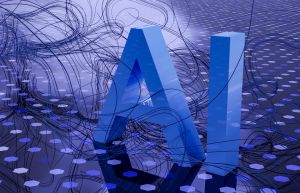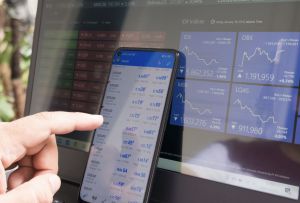Test Owner
SAP SE and LeanIX GmbH have announced a significant agreement wherein SAP is set to acquire LeanIX, a prominent player in the field of enterprise architecture management (EAM) software. This strategic move is aimed at bolstering SAP's business transformation offerings, providing customers with a complete toolbox to facilitate ongoing business transformation and fostering AI-driven process optimization. LeanIX, a privately held company, has been a trusted strategic partner of SAP and SAP Signavio solutions for a decade. A multitude of CIOs has come to rely on LeanIX's solutions as an integral part of their digital transformation journey with the RISE with SAP solution. The transaction is anticipated to conclude in the fourth quarter of 2023, subject to customary closing conditions and regulatory approvals, with the specific financial terms remaining undisclosed.
This acquisition represents SAP's extension of its comprehensive transformation suite, designed to assist customers in navigating change more seamlessly and achieving sustained enhancements in their business operations. LeanIX will complement the transformation capabilities offered by SAP Signavio solutions, granting SAP customers unparalleled clarity into their IT landscapes, a vital aspect for maximizing the benefits of business transformation. The combined offering forms a robust foundation for AI-driven process optimization.
LeanIX's software-as-a-service (SaaS) platform currently empowers over 1,000 customers across the globe to visualize their entire IT application landscape. It aids in identifying applications at risk of becoming obsolete, facilitates the design of target states, and assists in devising new architectural roadmaps. Furthermore, LeanIX has recently introduced an AI assistant, harnessing the potential of generative AI for enterprise architecture management. This advancement enhances automation and paves the way for an intelligent recommendation engine for IT landscape transformation in the future.
Christian Klein, CEO and Member of the Executive Board of SAP SE, emphasized the interconnectedness of systems and processes, stating, "Together with LeanIX, we want to offer a first-of-its-kind transformation suite to provide holistic support to our customers on their business transformation journeys. Building on our decades of expertise, we’ll embed generative AI to offer self-optimizing applications and processes that can help businesses achieve key goals such as maximizing cash flow while minimizing their environmental impact."
SAP's forthcoming business transformation solution suite will furnish customers with a comprehensive understanding of their business processes and applications. This includes mapping process dependencies and assessing the impact of potential transformations on the IT landscape. By combining LeanIX's IT landscape transformation capabilities with SAP Signavio Process Transformation Suite, RISE with SAP, and SAP Business Technology Platform, SAP customers will have the tools to foster a culture of continuous adaptability and improvement. Furthermore, LeanIX will continue to serve non-SAP landscapes.
André Christ, CEO and co-founder of LeanIX, spoke of their customer-centric approach, commitment to superior usability, seamless ecosystem integration, and their leadership position in enterprise architecture management. He explained their strategy to empower organizations for continuous transformation in a rapidly evolving business environment. With an integrated, comprehensive view of IT applications and business processes, LeanIX accelerates modernization, reduces transformation risks, and ensures adaptability to technology shifts such as cloud and AI.
MADRID — In a significant development, SAP SE (NYSE: SAP) has announced the successful transition of Amadeus, one of the world's foremost technology companies in the travel and tourism sector, to the cloud through the RISE with SAP solution. This achievement represents a major milestone in Amadeus' digital transformation journey, aligning with their vision to enhance the travel experience for individuals worldwide.
Amadeus, renowned for its pioneering solutions in the travel and tourism industry, leveraged the power of SAP's RISE with SAP S/4HANA Cloud, private edition, to migrate its internal processes to the cloud, with Microsoft Azure as its chosen cloud platform. This strategic move aimed to bolster operational resilience and transition to a cloud operations-centric model. The simplified approach offered by RISE with SAP, encompassing a single commercial package for infrastructure, managed services, and licensing, has been instrumental in enhancing Amadeus' operational efficiency.
By embracing RISE with SAP, Amadeus gains exclusive access to the latest updates, enhancements, and industry-specific solutions. This shift empowers the company to scale, adapt, and operate more efficiently while driving innovation within its cloud-based operational model. With the added capability to swiftly adjust operational capacity in response to market dynamics and demand fluctuations, Amadeus is well-prepared to support further growth in the travel industry.
Santiago Franco, Chief Information Officer at Amadeus, emphasized the company's commitment to leveraging technology to enhance traveler experiences. Franco highlighted the decision to adopt RISE with SAP as a pivotal move toward delivering an elevated level of service. He expressed confidence that this decision will not only enhance operational efficiency but also foster innovation and improve internal processes.
Scott Russell, a member of the Executive Board of SAP SE and lead of Customer Success, commended Amadeus for its cloud migration journey. He underscored the strategic significance of this transition, which positions Amadeus to elevate its success to new heights. Russell expressed SAP's pride in supporting Amadeus in streamlining their internal business processes, thereby enhancing efficiency and productivity, ultimately accelerating growth and success.
Amadeus plays a pivotal role in empowering the travel and tourism industry with innovative solutions and booking systems, serving airlines, travel agencies, and other industry stakeholders in over 190 countries worldwide. Amadeus' open platform serves as a connecting force within the global travel and hospitality ecosystem, bridging startups, major industry players, and governments, reshaping the future of travel.
SAP Contracting: Navigating the SAP Skills Gap
In the ever-evolving landscape of enterprise technology, SAP continues to be a linchpin for businesses worldwide. SAP solutions are pivotal in managing complex operations, driving efficiency, and facilitating digital transformation. However, the ever-growing SAP skills gap presents a significant challenge for organizations seeking to harness the full potential of this robust platform. In this article, we explore the challenges posed by the SAP skills gap and how contract engineers can help bridge this divide.
The SAP Skills Gap: A Growing Concern: The SAP skills gap is a well-documented issue in the tech industry. As SAP technologies evolve and new modules are introduced, the demand for skilled SAP professionals has surged. Unfortunately, the supply of SAP experts has not kept pace. Several factors contribute to the widening skills gap:
1. Rapid Technological Advancements: SAP is a dynamic platform with a continuous stream of updates and new functionalities. Staying current with the latest SAP innovations requires ongoing training and development, which many organizations struggle to provide.
2. Retirement of Experienced SAP Professionals: As veteran SAP professionals retire, their deep expertise leaves with them, creating a knowledge void that is challenging to fill.
3. High Competition: Organizations across industries are vying for the same limited pool of SAP talent, leading to fierce competition and often driving up labor costs.
4. Evolving Business Needs: Businesses' SAP requirements evolve over time, and finding professionals with the specific skill sets needed for each project can be challenging.
5. Cost of Hiring and Training: Hiring full-time SAP experts is a costly and time-consuming process. Training new hires or existing employees in SAP can also be resource-intensive.
Contract Engineers: A Solution to the SAP Skills Gap ?
Contract engineers, also known as SAP freelancers or consultants, have emerged as a valuable resource in navigating the SAP skills gap. Here's how they bridge the divide:
1. Flexibility: Contract engineers offer the flexibility to address specific project needs. Organizations can hire SAP experts with the precise skills required for a particular task, eliminating the need for long-term commitments.
2. Specialized Expertise: Contract SAP professionals often come with deep, specialized knowledge. They bring experience from working on a variety of projects and can quickly adapt to new challenges.
3. Cost-Effective: Contract engineers are cost-effective, as organizations pay for their services on a project or hourly basis. This can be more budget-friendly than hiring full-time staff, especially for short-term or intermittent projects.
4. Immediate Availability: Contract SAP consultants are readily available. This means organizations can quickly assemble a team of experts to address urgent needs or project timelines.
5. Reduced Training Overhead: Contract engineers require minimal training, if any, as they are already equipped with the necessary SAP skills and expertise. This saves organizations both time and resources.
6. Knowledge Transfer: In addition to their project-specific contributions, contract engineers can facilitate knowledge transfer. They can train existing employees, impart best practices, and help build internal SAP capabilities.
The SAP skills gap is a persistent challenge for organizations striving to leverage SAP solutions effectively. However, with the flexibility, specialized expertise, and cost-effectiveness that contract engineers bring to the table, businesses can bridge this gap and continue to harness the power of SAP for their digital transformation initiatives. As SAP technologies continue to advance, contract engineers will remain a vital resource for organizations looking to stay ahead in the ever-evolving world of enterprise technology.
In a groundbreaking announcement at Google Cloud Next, two tech giants, SAP SE and Google Cloud, unveiled an extended partnership aimed at revolutionizing how enterprises leverage data and generative artificial intelligence (AI) to drive innovation and growth. This strategic collaboration marks a significant step toward a future where data-driven decision-making and intelligent automation play a central role in business transformation.
Harnessing the Power of Data
Data is often referred to as the new currency of the digital economy, and for good reason. In today's fast-paced business landscape, organizations are generating vast amounts of data daily. However, the challenge lies in turning this data into valuable insights that can drive strategic decisions. This is where SAP and Google Cloud's partnership comes into play.
Data Integration and Accessibility
The expanded partnership between SAP and Google Cloud is set to deliver enhanced data integration and accessibility solutions. Enterprises will be able to seamlessly connect and extract insights from their data, regardless of where it resides – on-premises, in the cloud, or in hybrid environments. This is a game-changer for businesses seeking to leverage their data as a strategic asset.
Generative AI: A Path to Intelligent Automation
Generative AI, often referred to as GAI, is at the forefront of artificial intelligence advancements. It allows machines to generate content, automate complex tasks, and offer creative solutions by learning from vast datasets. This technology holds immense potential for businesses looking to automate repetitive tasks, optimize processes, and fuel innovation.
Transforming Business Operations
SAP and Google Cloud's partnership leverages generative AI to transform business operations significantly. By infusing GAI into SAP's intelligent suite of applications, enterprises can automate routine tasks, streamline workflows, and uncover valuable insights from their data. This enables organizations to focus on strategic activities that drive growth and innovation.
Enhanced Industry Solutions
The collaboration also extends to industry-specific solutions. SAP and Google Cloud are working together to develop and deliver tailored industry solutions powered by generative AI. Whether it's predictive maintenance in manufacturing, personalized patient care in healthcare, or demand forecasting in retail, these industry-specific solutions will provide organizations with a competitive edge.
A Future of Innovation and Growth
The partnership between SAP and Google Cloud represents a shared commitment to driving innovation and growth in the enterprise space. By harnessing the power of data and generative AI, organizations can stay agile, make data-driven decisions, and deliver exceptional experiences to their customers.
In Closing
The extended partnership between SAP SE and Google Cloud is poised to redefine the way enterprises harness data and generative AI. With the promise of enhanced data integration, accessibility, and intelligent automation, organizations across industries can embark on a transformative journey towards greater efficiency, innovation, and competitiveness. As we look ahead, this collaboration signifies a brighter, more data-driven future for businesses worldwide.
A new partnership between SAP and Microsoft has been revealed. It will use generative AI to tackle important business issues.
In order to take use of language models' potential for natural language analysis and generation, the alliance will combine SAP SuccessFactors products with Microsoft 365 Copilot, Copilot in Viva Learning, as well as Microsoft's Azure OpenAI Service. Organisations will be able to improve their hiring, talent development, and learning processes because to these integrations.
The skills gap is a serious problem that affects businesses all around the world. The gap between the abilities that organisations currently have and those that will be needed in the future is difficult for them to close. In order to meet this issue, recruitment methods must be optimised to draw in the best personnel and productive staff development programmes must be created. The manual labour and repetition involved in these operations, however, frequently leads to inefficiencies and missed opportunities.
SAP and Microsoft are working together to use generative AI technologies to expedite the hiring and training of new employees. The SAP SuccessFactors data and the Azure OpenAI Service API will be used to produce appealing and highly targeted job descriptions.
People managers will be able to fine-tune job descriptions using Copilot in Microsoft Word thanks to the interface between the SAP SuccessFactors Recruiting solution and Microsoft 365, assuring market competitiveness and identifying prejudice. Workflow disruptions won't occur because the final job descriptions will integrate easily with SAP SuccessFactors products. Additionally, SAP will make use of the Microsoft Teams' Azure OpenAI Service API to offer interviewers prompts and suggestions based on candidate resumes and job descriptions.
The collaboration between SAP and Microsoft not only intends to modernise hiring practises and employee growth, but it also provides a template for expanding large-language model functionality in a variety of business contexts. The vast global data estate of SAP offers a chance to maximise the potential of AI tools in various industries.
According to SAP, it upholds industry standards and places a strong emphasis on transparency, privacy, and fair judgement. To ensure ethical AI deployment, the company has defined guiding principles for the usage of AI in its software and works with ethics experts.
SAP and Microsoft are laying the groundwork for AI-powered solutions that will boost productivity and revolutionise human resources by combining their own capabilities.
Organisations can effectively close the skills gap and equip their employees to succeed in a business environment that is changing quickly through the integration of generative AI technology with SAP SuccessFactors solutions and Microsoft's productivity tools.
SAP SE (NYSE: SAP) and IBM (NYSE: IBM) announced that IBM Watson technology will be integrated into SAP solutions to deliver new AI-driven insights and automation to support innovation and improve user experiences throughout the SAP application portfolio.
The digital assistant in SAP Start, which serves as a uniform entry point for SAP cloud applications, will be powered by IBM Watson capabilities. Users can search for, launch, and interact with apps offered in cloud solutions from SAP and SAP S/4HANA Cloud using SAP Start. With the aid of IBM Watson AI solutions based on IBM's trust and transparency and data protection principles, new AI capabilities in SAP Start will be created to assist customers increase productivity through both natural language capabilities and predictive insights.
In order to assist managers and staff with a variety of queries, new digital assistant capabilities in SAP Start will be expanded throughout SAP solutions. The features are intended to assist unlock staff productivity so they may concentrate on more strategic work by automating and expediting routine activities. With the capacity to leverage AI and machine learning to extract data from a range of data sources and respond to user questions across lines of business, SAP Start will give customers intelligence at the point of choice. Nearly 13 million users can now easily access AI-derived weather insights through the TripIt mobile app from SAP Concur, thanks to IBM technology, and make more environmentally friendly travel decisions both before and during their trips.
With Watson products used by more than 100 million people across 20 sectors, IBM offers market-leading AI capabilities. Additionally, 25 joint intelligent industry solutions with IBM Watson capabilities that are supported by SAP Business Technology Platform (SAP BTP) are currently being offered to customers by SAP and IBM Consulting. These sector-specific solutions support customers in sectors like retail, manufacturing, and utilities as they accelerate business transformation and use data to make better decisions.
SAP and IBM are working together on generative AI and profound language models in order to enable consistent continuous learning and automation based on SAP's mission-critical application portfolio, in addition to directly integrating IBM Watson AI capabilities into SAP products.
Source: https://news.sap.com/2023/05/ibm-watson-artificial-intelligence-in-sap-solutions/
SAP releases its Q1 2023 Results
Germany's WALLDORF, April 21, 2023 /PRNewswire/ -- The financial results for the first quarter ending March 31, 2023, were released by SAP SE (NYSE: SAP).
- Cloud revenue increased by 24% and by 22% in constant currency, up 1% over the previous quarter. S/4HANA cloud revenue increased by 77% overall and by 75% in constant currency.
- At nominal and constant currencies, the current cloud backlog is up by 25%, representing a 1% improvement in sequential growth.
- IFRS cloud gross profit increased by 28%, non-IFRS cloud gross profit increased by 28%, and at constant currencies, gross profit increased by 27%.
- Operating profit under IFRS fell by 45%, whereas operating profit under non-IFRS increased by 12% and by 12% at constant currencies.
- Updated forecast for 2023 to account for the anticipated sale of Qualtrics. SAP updates its view for ongoing business, noting that it expects top line and operating profit growth to pick up.
- According to IFRS 5, the Qualtrics consolidated group ("Qualtrics") was categorised as ceased activities in Q1 2023. As a result, Qualtrics' contribution is not reported as part of SAP's ongoing operations.
The first quarter of 2023
At constant exchange rates, the current cloud backlog increased by 25% to €11.15 billion, representing a 1% improvement in sequential growth. At constant exchange rates, the backlog for SAP S/4HANA's current cloud increased by 79% to €3.42 billion, or 78%.
Cloud sales increased by 24% to €3.18 billion in the first quarter and by 22% at constant currencies, up 1% from the previous quarter. Revenue from SAP S/4HANA cloud increased 77% to €716 million and 75% when measured in constant currencies.
Software licence sales declined by a manageable 13% to €276 million and was down 13% at constant currencies, helped by a few significant purchases. Revenue from the cloud and software increased by 10% to €6.36 billion and by 8% in constant currency. Revenue from services increased by 11% in constant currency and 12% to €1.08 billion. The whole revenue increased 9% in constant currency terms and 10% to €7.44 billion.
In the first quarter, the percentage of more predictable revenue rose by 1 point to 82%.
Operating profit according to IFRS fell by 45% to €803 million. The increase in share-based compensation, which represents the gain in share price during the first quarter as compared to the decline over the same period last year, is the main cause of the decline. Restructuring costs related to the targeted restructuring programme and costs attributable to a provision for prior regulatory compliance issues also had an impact on IFRS operating profit (see section (D) Basis of Non-IFRS Presentation). At constant exchange rates, non-IFRS operating profit increased by 12% to €1.87 billion.
IFRS basic earnings per share thus fell by 60% to €0.35. The basic non-IFRS earnings per share rose 8% to €1.08. With IFRS, the effective tax rate was 40.5%, while without IFRS, it was 28.3%. For IFRS, the adjustments in non-deductible expenses and valuation allowances on deferred tax assets were the main causes of the year-over-year increase. Due to corresponding modifications to pre-tax data, the changes in non-deductible expenses do not apply for non-IFRS.
The impact of the sale of trade receivables in the fourth quarter of last year, which weighed on Q1, caused free cash flow to decline by 9%.
Cloud gross profit increased by 28 percent (IFRS) to €2.24 billion, 28 percent (non-IFRS) to €2.27 billion, and 27 percent (non-IFRS at constant currencies).
Enterprise Highlights
Customers from all around the world kept selecting "RISE with SAP" to power their end-to-end business transformations in the first quarter. BMW Group, DOLCE & GABBANA, GAMA, GlasfaserPlus, The Government of Manitoba, Henkel, KANSAI PAINT CO, Lingong Heavy Machinery, MLS, NEC Networks & System Integration Corporation, Pastificio Rana, Sempra Infrastructure, Sodexo BRS, Sri Intellectual, Thales Defence & Security Inc, VEM Conveniência, and Zagis were some of these clients.
For the fiscal year 2022, SAP recommended a dividend of €2.05 per share, which would represent a 5% increase from the usual dividend paid for the fiscal year 2021. The dividend must be approved by shareholders at the forthcoming AGM on May 11, 2023.
On March 21, SAP unveiled GROW with SAP, a fresh service designed to assist midsize clients in adopting cloud ERP that promotes quickness, predictability, and ongoing innovation. It is a comprehensive service built on the SAP Business Technology Platform and SAP S/4HANA Cloud, public edition.
The third year of the Climate Decade has already begun, so it is critical that businesses begin switching to 100% renewable electricity as soon as possible. Organisations are better prepared to withstand growing energy prices and the looming threat of climate change when they switch to 100% renewable electricity. According to a research by the International Renewable Energy Agency, "doubling the share of renewables in the energy mix by 2030 would increase global GDP by up to 1.1%, improve welfare by up to 3.7%, and support over 24 million jobs in the sector."
In 2013, the Finnish Association for Nature Conservation and other environmental NGOs launched EKOenergy, a global not-for-profit ecolabel for energy, with the goal of achieving sustainable energy production and consumption. Through the EKOenergy label, a globally regarded quality seal for renewable energy, EKOenergy strives to assist businesses in hastening the transition to 100% renewable energy. The Greenhouse Gas Protocol, LEED for green buildings, CDP, and RE100 all refer to the EKOenergy designation as an option for businesses who want to move closer to using only renewable energy. In March 2021, the European Parliament additionally presented EKOenergy with the European Citizen's Prize 2020.
The EKOenergy ecolabel enhances consumers' ability to choose renewable energy and can be used in conjunction with sources of energy such as green tariffs, PPAs, or unbundled energy certificates. It may also be applied to internally generated energies. Through its Climate Fund, EKOenergy has helped underprivileged communities since the label's introduction by funding 79 new renewable energy projects in 29 developing nations.
SAP has already recognised and matched existing activities with the 17 Sustainability Development Goals of the UN, placing sustainability at the centre of its strategy. SAP has committed to the Science Based Targets initiative (SBTi) to reduce emissions across its whole Scope 3 value chain, including emissions from products-in-use at customers, by 85% by 2050 compared to the base-year level of 2016. By pledging to achieve net-zero emissions by 2030 and reaching a balance between greenhouse gas emissions and removal, SAP has increased the pace of its climate aspirations.
Since 2014, SAP has powered all of its offices and data centres with electricity produced entirely from renewable sources. SAP picked the renowned EKOenergy label as part of its transition to 100% renewable electricity. SAP pays 0.10 euros to EKOenergy's Climate Fund, which aims to reduce energy poverty while also promoting climate protection and renewable energy, for every megawatt hour of power with the EKOenergy badge.
Source: https://news.sap.com/2023/04/sap-ekoenergy-partner-for-renewable-future/
The April 2023 security patches from enterprise software provider SAP have been made available for a number of its products. These updates fix two critical-severity flaws that affect the SAP Diagnostics Agent and the SAP BusinessObjects Business Intelligence Platform.
In total, SAP has published 24 notes, of which five are updates to earlier bulletins and 19 are new issues of various seriousness.
The three most important problems resolved this time are:
- CVE-2023-27267: The OSCommand Bridge of the SAP Diagnostics Agent, version 720, has a problem with insufficient input validation and missing authentication that makes it possible for an attacker to run scripts on linked agents and completely compromise the system.
- CVE-2023-28765: Versions 420 and 430 of SAP BusinessObjects Business Intelligence Platform (Promotion Management) are affected by an information disclosure vulnerability that enables a user with minimal access rights to decrypt the lcmbiar file. This would give the attacker access to the credentials of the platform's users and allow them to hijack their accounts to carry out additional harmful deeds.
- CVE-2023-29186: SAP NetWeaver versions 707, 737, 747, and 757 are affected by a directory traversal bug that enables an attacker to upload and overwrite files on the exposed SAP server.
In SAP's most recent security advisory, there are still 11 security holes that are of low to medium severity.
Even while these problems are typically not given top priority for patching, assaults nevertheless use them, especially when they are a part of intricate attack chains, therefore they must be fixed.
Quick patching is crucial
Hackers are constantly searching for critical-severity vulnerabilities in widely used programmes like SAP's, which are widespread in vast corporate networks.
With 425,000 clients in 180 countries and a 24% market share globally, SAP is the largest ERP provider in the world. Its ERP, SCM, PLM, and CRM products are used by more than 90% of the Forbes Global 2000.
In order to avoid data theft, ransomware attacks, and the disruption of mission-critical operations and processes, the US Cybersecurity and Infrastructure Security Agency (CISA) recommended admins to patch a number of serious vulnerabilities affecting SAP business apps in February 2022.
Threat actors were seen attempting to penetrate business networks by exploiting patched holes in unpatched SAP systems in April 2021.
Applying the appropriate security fixes as soon as possible is therefore absolutely critical for SAP system administrators.
The German software giant is spinning off its listed customer experience management subsidiary Qualtrics as part of its restructuring. The deal, made with two investment funds, values the company at $12.5 billion.
SAP, which announced a restructuring in January involving a refocusing on the cloud and the elimination of 3000 jobs, has reached an agreement with the American fund Silver Lake and the Canadian pension fund CPP to sell Qualtrics. This subsidiary specialising in customer experience management had been floated on the stock exchange in 2021. The two investment funds are buying SAP's shares in Qualtrics for 7.7 billion dollars in cash. Silver Lake was already a shareholder. The transaction should be finalised in the second half of this year.
A subsidiary that was losing money
SAP had acquired the American Qualtrics in 2018 for $8 billion. The German software giant says the sale values Qualtrics at $12.5 billion in total. At the buyout price of $18.15 per share, this represents a 73% premium to the average price over the past 30 days. At the time of its IPO, it was valued at $27 billion.
"Silver Lake has both the operational expertise and the track record in software companies to help Qualtrics extend its leadership in the experience management category, which it pioneered," said Christian Klein, CEO of SAP, in a statement. He added that SAP will remain a privileged partner of the company.
Qualtrics now has 18,000 customers, compared to 10,000 at the time of the SAP acquisition. At the end of January, the company reported a 36% year-on-year increase in turnover, but lost more than a billion dollars over the year.














